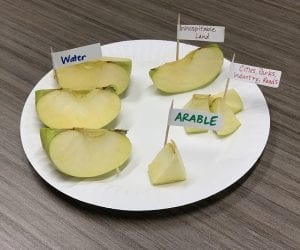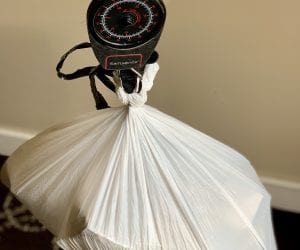Part Three of the “Benefits of Urban Gardens” Series
The world over knows the dire consequences of air and water pollution on its populations and environment. And since the urban migration trend will continue in the future, cities in the U.S and abroad are coming up with innovative ways to both meet the needs of its growing populations and to improve city environmental quality. These five urban garden programs are some of the best examples of innovation, education and community building across the world. Let this list inspire you to participate in your own urban garden project in your city.
1. La Finca del Sur – South Bronx, New York
Since 2009, La Finca del Sur in the South Bronx has provided its community with organic affordable produce, catering to the specific tastes and needs of the neighborhood. This initiative is led by black and Latina women and their allies to ensure economic empowerment, food justice and education for the people in the South Bronx. They also provide spaces for political and community meetings that cater towards the communities they serve. This urban garden project not only ensures a green space in the city that improves air quality but also aids in the upward mobility of low-income communities.
2. City Farmer – Vancouver, British Columbia
As the first organization to provide resources on the internet on urban farming, City Farmer is a resource site that provides all city dwellers with accessible information on how to contribute to environmental stewardship by maintaining eco-friendly households in an urban setting. In addition to providing tips and tricks like collecting rainwater and making compost for an urban garden, this 39 year-old organization also runs their own demonstration garden that shows community members how to build a green roof or grow organic vegetables among many other valuable lessons. If you’re ever in the Vancouver area, the City Farmer team is open to visitors stopping by to visit and learn.
3. O’Hare International Airport’s Vertical Farm – Chicago, Illinois
Although many international airports have indoor gardens to help relieve traveler stress and provide welcome greenery to an otherwise drab environment, O’Hare International Airport is the first to develop a fully-functioning aeroponic vertical farm that provides produce to many of its food vendors. The farm, which grows basil, green beans and Bibb lettuce among other vegetables and herbs, prides itself for being both economical and environment-friendly. These towers use two-thirds less water than conventional farming and can be cultivated year-round all while providing a learning opportunity to travelers. The next time you’re in Chicago, make sure to get to the airport a little early to visit the vertical farms.
4. Fresh & Local – Mumbai, India
With a population of over 21 million, Mumbai is the second most populous city in India. The city’s explosive population boom has left the local government struggling to ensure safe and clean conditions for its residents. Fresh & Local is but one of the organizations that has taken on the challenge of improving the environment in Mumbai. Fresh & Local transforms underutilized urban spaces to productive farms with the aim of improving the health and well-being of Mumbai’s residents. Since 2010, Fresh & Local has provided green spaces as well as a variety of workshops and programs catered to Mumbai residents to educate them on sustainable agriculture and food production. This organization also runs The Nomadic Garden: a mobile program catered to middle school students that brings urban gardening to the classroom.
5. Baltimore Urban Gardening with Students (B.U.G.S.) – Baltimore, Maryland
One of the best ways to ensure that people will continue to care about sustainability in all forms is to teach them early. The Baltimore Urban Gardening with Students program is a Living Classrooms offshoot that works with students from low-income communities in the East Baltimore area throughout the year and during the summer. The B.U.G.S. program’s primary goal, according to their mission statement, is to empower and inspire our children to develop academically, creatively, and socially.” They do this by incorporating agriculture, cooking, entrepreneurship, and the creative arts in order to improve academic performance and student behavior.
Download PopEd’s lesson Scraps into Soil and learn how to create individual composting containers. A great project for your family, students, or neighbors!




